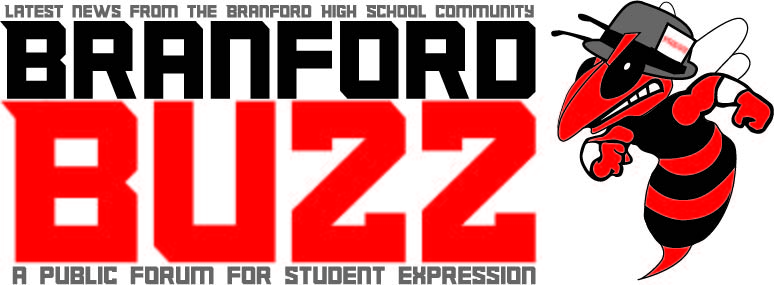 by Kelly Du
Everywhere we go, we are inundated with advertising. They appear in commercials, magazines and newspapers, along the sides of websites, billboards, etc. Any open space or place is good enough for advertisers. The most direct and easily noticeable thing used in advertising is the claims. Some are misleading lies while others are honest statements. But most fit into the category of “neither bold lies nor helpful consumer information.” By using carefully chosen words, advertisements balance between truth and falsehood. Here are just a few of the many claims that are commonly used.
THE WEASEL CLAIM
Weasels are words that “appear substantial upon first look but disintegrate into hollow meaninglessness on analysis.” The words don’t support the entire claim.
“Helps control dandruff symptoms with regular use.”
The weasels are “helps control” because it doesn’t say that it will stop the dandruff.
“Leaves dishes virtually spotless.”
“Virtually” isn’t the same as making dishes just spotless.
THE UNFINISHED CLAIM
These claim that the product is better or has more of something, but doesn’t finish the comparison.
“Coffee-mate gives coffee more body, more flavor.”
“Scott makes it better for you.”
This first claim says “more,” but doesn’t compare it to anything. As for the second one, it doesn’t say how the product makes it “better.”
THE “SO WHAT” CLAIM
It sounds true, but it gives no advantage to the product.
“Geritol has more than twice the iron of ordinary supplements.”
Is twice as much iron good for the body?
“Campbell’s gives you tasty pieces of chicken and not one but two chicken stocks.”
Does having an extra chicken stock improve the taste?
A lot of the claims used in ads try to persuade you into believing their products are superior and better than the rest, but upon further analysis, many of them are very weak at proving this point. Having “more” doesn’t always mean it’s a good thing, and weasels are commonly used everywhere. Don’t trust all the claims you read because even though they may appear positive, they may prove to be just false and empty.
Schrank, Jeffrey. “The Language of Advertising Claims.” HANDOUT: The Language Of Advertising Claims. Web. 22 Apr. 2012. <http://sunset.backbone.olemiss.edu/~egjbp/comp/ad-claims.html>.
by Kelly Du
Everywhere we go, we are inundated with advertising. They appear in commercials, magazines and newspapers, along the sides of websites, billboards, etc. Any open space or place is good enough for advertisers. The most direct and easily noticeable thing used in advertising is the claims. Some are misleading lies while others are honest statements. But most fit into the category of “neither bold lies nor helpful consumer information.” By using carefully chosen words, advertisements balance between truth and falsehood. Here are just a few of the many claims that are commonly used.
THE WEASEL CLAIM
Weasels are words that “appear substantial upon first look but disintegrate into hollow meaninglessness on analysis.” The words don’t support the entire claim.
“Helps control dandruff symptoms with regular use.”
The weasels are “helps control” because it doesn’t say that it will stop the dandruff.
“Leaves dishes virtually spotless.”
“Virtually” isn’t the same as making dishes just spotless.
THE UNFINISHED CLAIM
These claim that the product is better or has more of something, but doesn’t finish the comparison.
“Coffee-mate gives coffee more body, more flavor.”
“Scott makes it better for you.”
This first claim says “more,” but doesn’t compare it to anything. As for the second one, it doesn’t say how the product makes it “better.”
THE “SO WHAT” CLAIM
It sounds true, but it gives no advantage to the product.
“Geritol has more than twice the iron of ordinary supplements.”
Is twice as much iron good for the body?
“Campbell’s gives you tasty pieces of chicken and not one but two chicken stocks.”
Does having an extra chicken stock improve the taste?
A lot of the claims used in ads try to persuade you into believing their products are superior and better than the rest, but upon further analysis, many of them are very weak at proving this point. Having “more” doesn’t always mean it’s a good thing, and weasels are commonly used everywhere. Don’t trust all the claims you read because even though they may appear positive, they may prove to be just false and empty.
Schrank, Jeffrey. “The Language of Advertising Claims.” HANDOUT: The Language Of Advertising Claims. Web. 22 Apr. 2012. <http://sunset.backbone.olemiss.edu/~egjbp/comp/ad-claims.html>.
Discover more from Branford High School Buzz
Subscribe to get the latest posts sent to your email.


I never knew about the Weasel Claim. After thinking about it, a lot of ads rely on weasels to trick us into believing that their products are good. Ads are not only deceiving, but are really pointless at saying anything truthful.
These kinds of claims say so much and yet so little at the same time. The claims seem positive, but there’s no substantial information to back them up. If you think about it, they don’t really say anything better about the product. I’m definitely going to be more critical of advertising claims in the future.